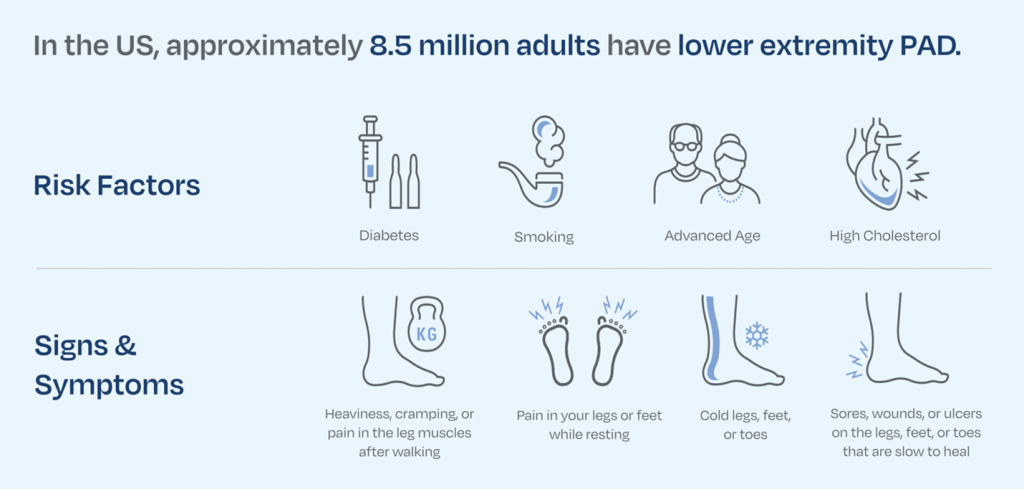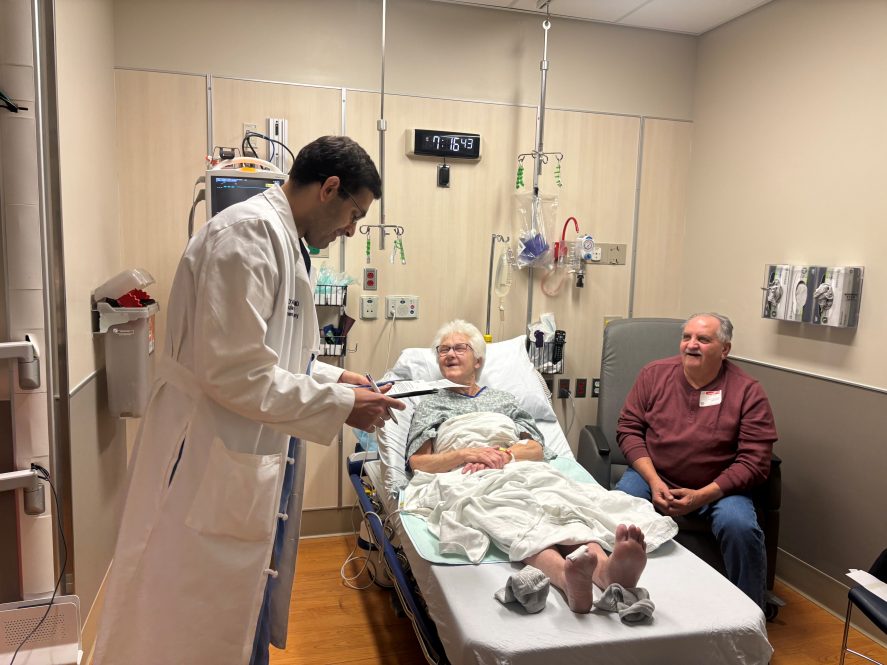Last February Maureen Marchetti, 70, of Brooklyn, Connecticut, started noticing the toes on her right foot turning purple.
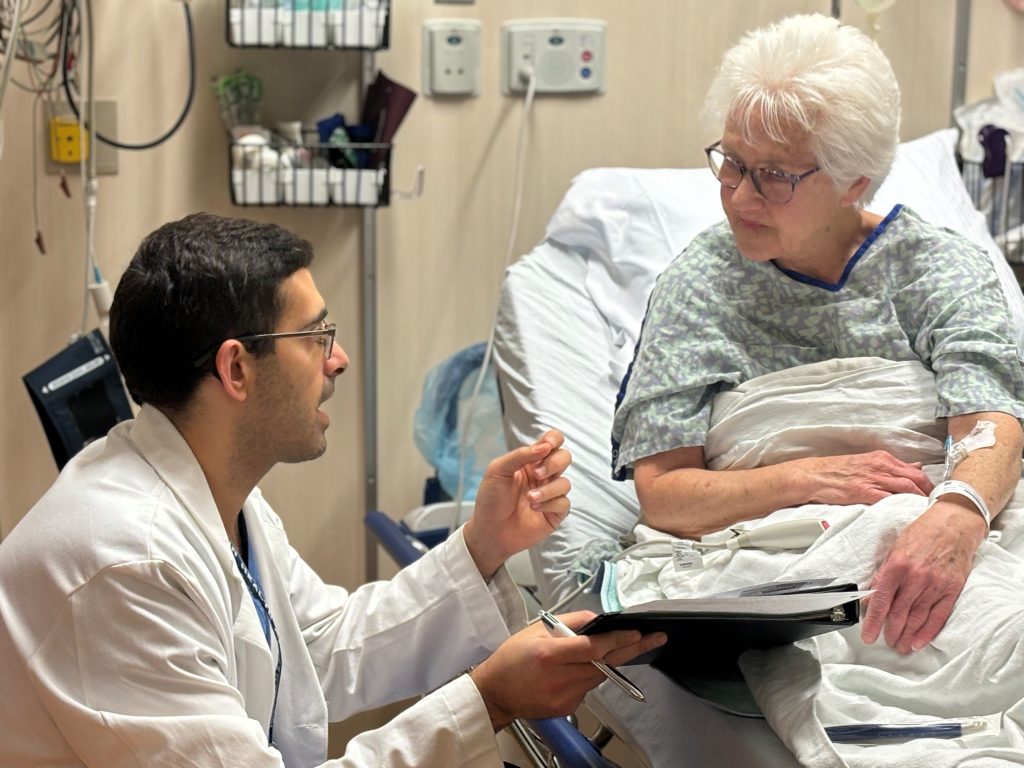 “I had no idea what was going on,” Marchetti recounts. But after a few trips to the emergency department, her doctors referred her directly to the Division of Vascular and Endovascular Surgery at UConn Health.
“I had no idea what was going on,” Marchetti recounts. But after a few trips to the emergency department, her doctors referred her directly to the Division of Vascular and Endovascular Surgery at UConn Health.
It turns out that unknowingly and surprisingly, Marchetti’s longtime smoking habit was catching up to her, and all the way down to her toes.
She was diagnosed with severe peripheral arterial disease (PAD), which causes significant blood vessel blockages and hardening of the arteries in her legs dangerously, restricting blood flow. The major risk factors for the circulatory PAD condition are aging, diabetes, and smoking.
“I knew smoking was bad, but never this bad,” says Marchetti. “I never realized smoking could do this much harm to my leg arteries and blood flow down to my toes.”
Unfortunately, vascular surgeons needed to amputate all the toes on Marchetti’s right foot in May 2023 because of the advancement and severity of her PAD.
But again recently, Marchetti noticed a change in her other left foot.
“My left foot’s toes started to turn purple too,” says Marchetti, who was expecting to soon have a big, open leg artery bypass surgery intervention with surgeons taking a vein from her right leg to help restore blood flow inside her PAD inflicted left leg.
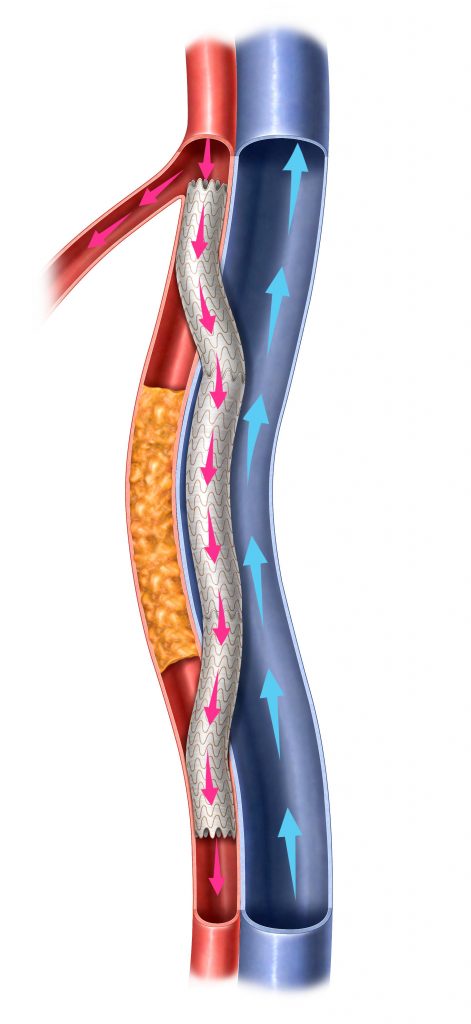
But thankfully just in time, an alternate treatment route and brand-new tool arrived in New England at UConn Health in Farmington.
On January 25, Marchetti underwent a successful DETOUR procedure with Dr. Justin D’Addario and the vascular team at UConn John Dempsey Hospital. It was the first-ever alternative procedure of its kind in New England.
Marchetti is thankful for the minimally invasive innovative treatment path she was offered and received at UConn Health and having the opportunity to avoid major leg open surgery, months of recovery, vein retrieval from her other leg, and also avoiding a large surgical scar down her entire leg.
“My UConn Health surgeons and I are pretty excited about this new cool procedure! I got to go home the day after, and just take it easy for a few days after,” says Marchetti. “Thanks to the vascular surgeons, so much burden is now off my shoulders and my legs. Having this burden off of me is the biggest relief.”
She adds: “I now have no more fear of losing all my toes. I am so happy the surgeons could minimally invasively hitchhike onto another vein in my leg to fix my blockage and blood flow. It also gives me the goosebumps that I am the first patient in New England to benefit from the new technology.”
This February Heart Month, Marchetti wants everyone to take care of their cardiovascular health including by quitting smoking which she has done.
“My number one message is to stop smoking and suffering smoking’s penalties. I was rudely awakened with smoking’s extended impact with a PAD diagnosis. Beware. Smoking can cause you to lose your toes, your feet, and your legs – all because of smoking cigarettes!”
Marchetti’s husband Jim Marchetti is so grateful for his wife’s minimally invasive procedure and health journey success at UConn Health.
“This procedure is changing our whole life,” says Jim. “We are looking forward to getting back to normal.”
He concludes: “Thank goodness for innovation and the doctors at UConn Health.”
The Marchetti family shares their heartfelt thanks with UConn Health stating: “The whole vascular team at UConn Health is wonderful!”
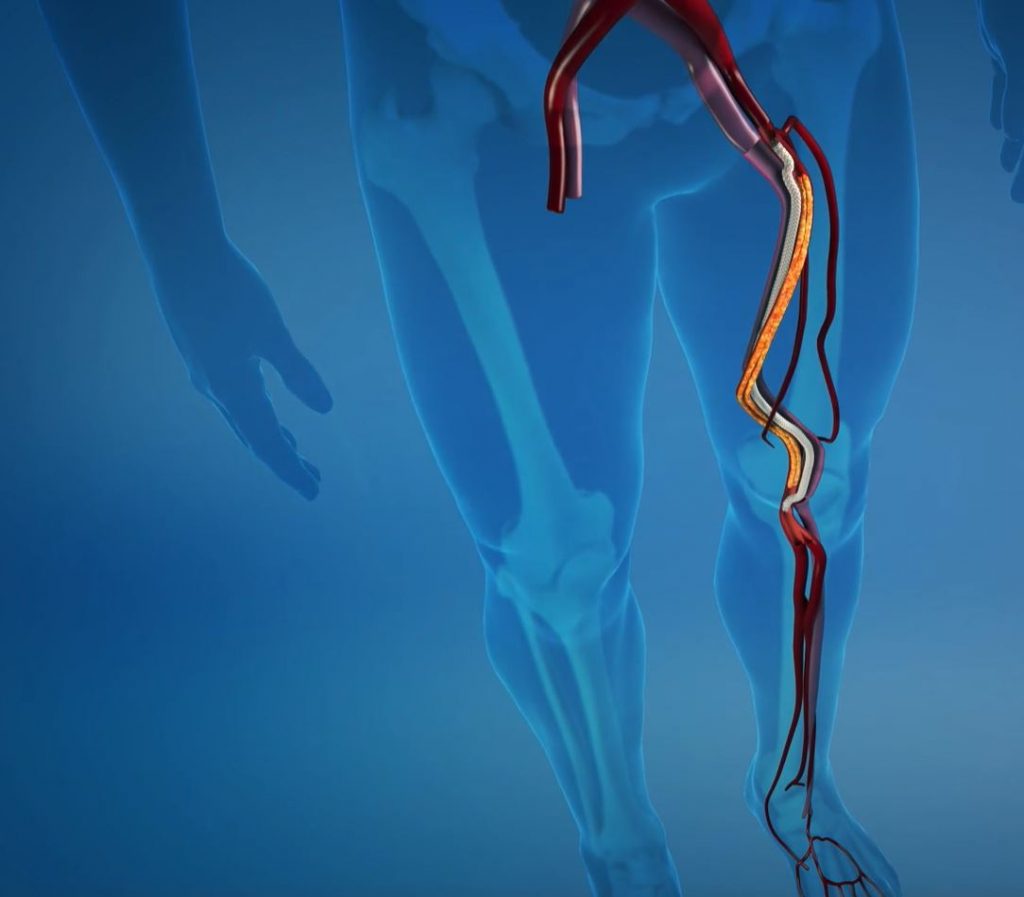
“We are thrilled to be able to now minimally invasively help severe and complex PAD patients like Maureen avoid losing toes and limbs – and look forward to helping more patients with these very successful, positive outcomes. The new medical device system treatment option is a real game-changer allowing us to perform minimally invasive endovascular femoral-popliteal bypasses and avoiding traditional open leg surgery,” says UConn Health’s Dr. Justin D’Addario, the vascular surgeon who performed the first DETOUR case in New England.
During the less invasive Percutaneous Transmural Arterial Bypass (PTAB), via the superficial femoral artery (SFA), vascular surgeons at UConn Health guided a thin catheter through Marchetti’s femoral artery, to precisely navigate the device around her blocked femoral-popliteal region, utilizing the femoral vein to deploy the detouring stent graft. The DETOUR procedure’s alternate route using the femoral vein allows for the targeted, more localized intervention to restore blood flow throughout the leg.
The DETOUR System, made by Endologix, won Breakthrough Device Designation from the FDA in 2020 and in June 2023 received FDA approval.
The risk factors, and signs and symptoms of PAD are:
